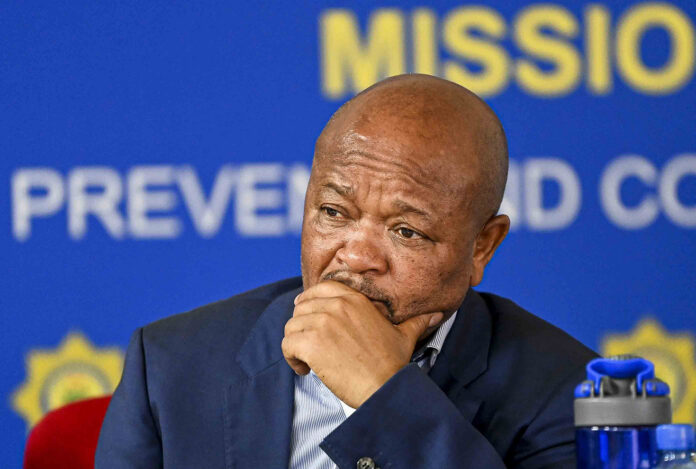Police Minister Senzo Mchunu, now on a special leave of absence, has been forced to explain himself before Parliament’s Ad Hoc committee after admitting that he took no immediate action when told that sensitive police dockets were being sent to Pretoria.
The transfer was ordered by SAPS deputy commissioner for crime detection Lt-Gen Shadrack Sibiya following the letter of directives for the political killings task team to be dissolved.
The committee is investigating allegations made by KwaZulu-Natal police commissioner Lt-Gen Nhlanhla Mkhwanazi, which implicate Mchunu in alleged criminality and interference in police work.
Letter of directives
Mchunu had admitted during the tense proceedings that he drafted the December 31 2024, letter of directives. This included, among other things, the disbandment of the political killings task team.
He said there was nothing sinister about writing the serious letter on New Year’s eve. And he claimed that he wanted the issues to be dealt with early in the year. He expressed concern over the issues.
The team had been investigating dozens of politically linked murders in KwaZulu-Natal. It had also done some work of uprooting corruption at Fort Hare University.
The letter has allegedly prompted Sibiya’s instruction that the task team return 121 investigation dockets to Pretoria offices of the SAPS. A move that has caused outrage among MPs and civil society groups.
When Economic Freedom Fighters (EFF) leader Julius Malema questioned Mchunu on what steps he took after hearing that the dockets were being sent to Sibiya’s office, he responded that it should have been a subject of discussion within a preliminary report.
Preliminary report
He described the preliminary report as an operational implementation matter with all implications of the directives. According to Mchunu, the report should carry details including what will happen to the staff of the team, the dockets, and other related matters.
“The matter was actually being handled at that time by the national commissioner. And I took the line that says that they are resolving the matter because there was no stand-off. For instance, I asked general Sinthumule: when these documents were handed over was it at gun point?
“And she said: no, it was not at gunpoint, we knew what we were doing. And I took the line that they are handling the matter. They should be able to resolve,” said Mchunu.
Malema argued that Mchunu therefore did not do anything about the matter. Trusting that the national commissioner, deputy national commissioner, and the two divisional commissioners as indicated, were handling the matter.
He said there was no other way but to trust and believe that they were already handling the matter. And added that his trust was placed on believing that the matter is handled properly.



